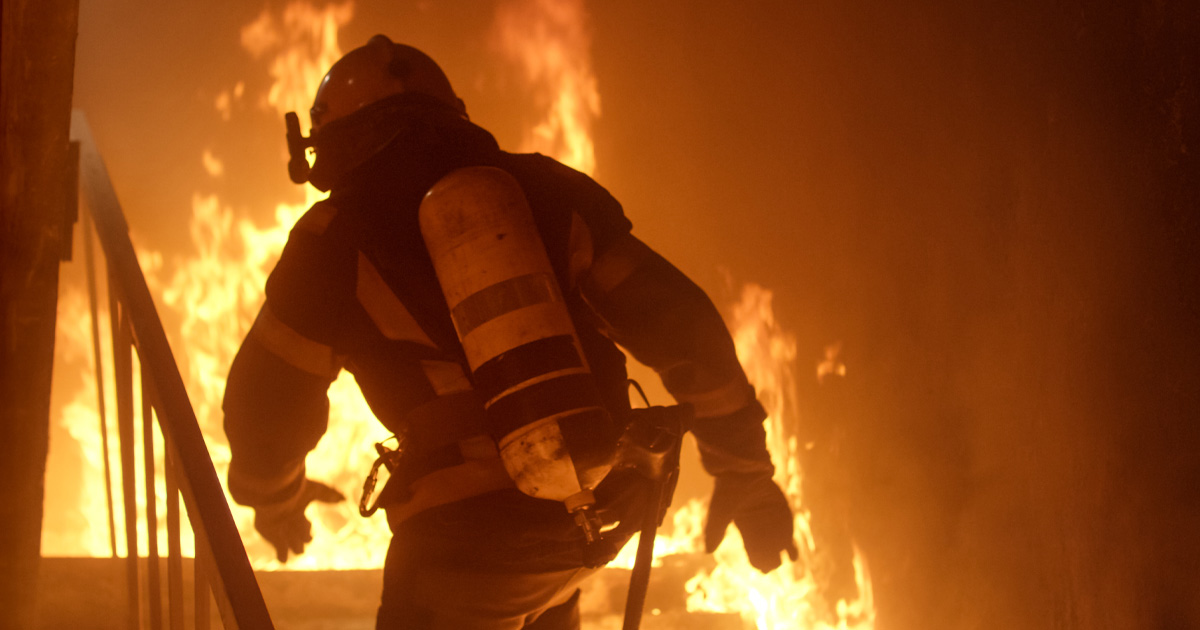
Running into a burning building isn’t the only major threat firefighters face. Men and women on the frontlines of America’s fire departments often are exposed to toxic smoke, asbestos and other chemicals and substances that may increase their cancer risk. As a result, these first responders are diagnosed with cancer at a higher rate than the general population, according to a 2017 study by the National Institute for Occupational Safety and Health (NIOSH). The study found that firefighters have a 9 percent higher risk of being diagnosed with cancer and a 14 percent higher risk of dying from cancer than the general public most Americans.
To help track cancer cases among firefighters, Congress recently passed the Firefighter Cancer Registry Act, requiring the U.S. Centers for Disease Control and Prevention to develop a database of cancer cases, to help health professionals better understand firefighters’ risk and investigate how to mitigate it.
“A national database may provide a broader understanding of the trends associated with why, how and when firefighters are contracting cancer,” says Maurie Markman, MD, President of Medicine & Science at Cancer Treatment Centers of America® (CTCA). “Establishing a national cancer registry was the first step to building a database where health experts can study the factors associated with cancer diagnoses in the firefighting community. Hopefully, through this registry, researchers can develop more sophisticated protocols and safeguards to reduce the number of firefighters being diagnosed with cancer.”
In its research, which concluded in 2015, the NIOSH studied 30,000 career firefighters who worked between 1950 and 2009 in Chicago, Philadelphia and San Francisco. Among its conclusions, the institute found:
- Firefighters had increased incidences of digestive, oral, respiratory and urinary cancers.
- Firefighters had twice the risk of developing mesothelioma, likely due to increased exposure to asbestos.
- Firefighters were more likely to develop some cancers, especially bladder and prostate cancers, at an age younger than 66, the average age of a person first diagnosed with cancer.
- While the sample size was small, female firefighters were more likely to develop bladder cancer, which is generally more common in men.
A separate study of firefighters in California found that the first responders had higher risks of developing melanoma, multiple myeloma, leukemia and several other cancers.
The Firefighter Cancer Registry Act was introduced in Congress in 2016 and signed into law last year. The registry is open and the CDC is urging firefighters to enroll. Participation is voluntary and the registry is open to all firefighters, even those who have not been diagnosed with cancer.
By joining the registry, the CDC says participants will:
- Help to reduce firefighters' cancer risk
- Develop new health and safety measures to help keep firefighters safe
- Expand knowledge about cancer risk among minority, female and volunteer firefighters
“Modern medicine does not fully understand why firefighters experience cancer at rates much higher rate than the general public,” said Chief Thomas Jenkins, International Fire Chief Association President & Chairman of the Board, said in a press release. “The IAFC thanks our leaders in Congress for passing this important legislation to create a national firefighter cancer registry. The registry will help with critical research so we can better understand the causes and outcomes of cancer in the fire service and help us identify ways to mitigate and prevent it.”
If you have questions about the National Firefighter Registry, email NFRegistry@cdc.gov.

